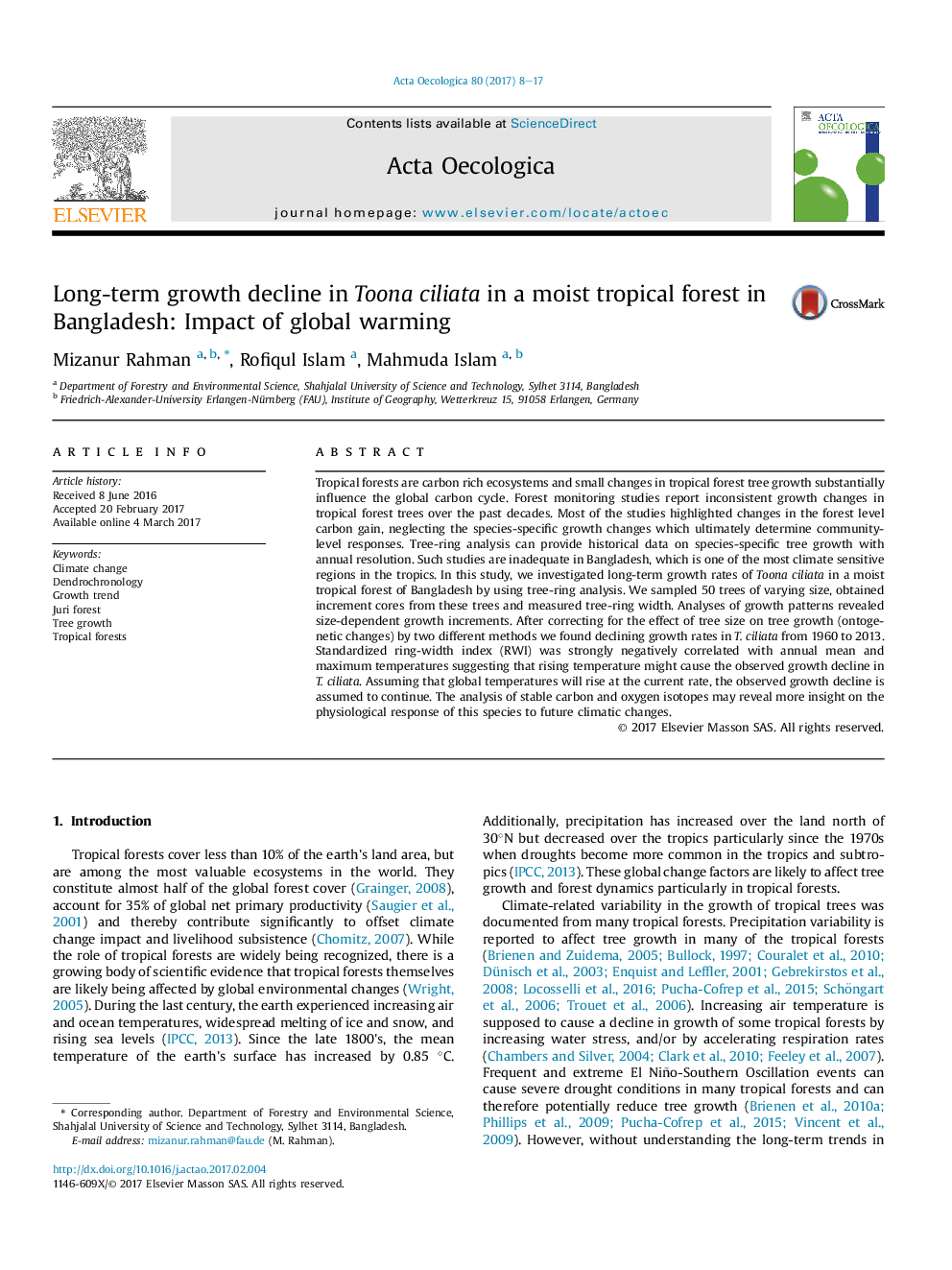| کد مقاله | کد نشریه | سال انتشار | مقاله انگلیسی | نسخه تمام متن |
|---|---|---|---|---|
| 5742472 | 1617692 | 2017 | 10 صفحه PDF | دانلود رایگان |

- Tree-ring analysis revealed long-term growth decline in Toona ciliata in the Juri forest reserve, Bangladesh.
- Increasing temperature is likely to cause the declined growth in Toona ciliata in the Juri forest.
- The stable carbon and oxygen isotope analyses may reveal more insight on the response of this species to climatic changes.
Tropical forests are carbon rich ecosystems and small changes in tropical forest tree growth substantially influence the global carbon cycle. Forest monitoring studies report inconsistent growth changes in tropical forest trees over the past decades. Most of the studies highlighted changes in the forest level carbon gain, neglecting the species-specific growth changes which ultimately determine community-level responses. Tree-ring analysis can provide historical data on species-specific tree growth with annual resolution. Such studies are inadequate in Bangladesh, which is one of the most climate sensitive regions in the tropics. In this study, we investigated long-term growth rates of Toona ciliata in a moist tropical forest of Bangladesh by using tree-ring analysis. We sampled 50 trees of varying size, obtained increment cores from these trees and measured tree-ring width. Analyses of growth patterns revealed size-dependent growth increments. After correcting for the effect of tree size on tree growth (ontogenetic changes) by two different methods we found declining growth rates in T. ciliata from 1960 to 2013. Standardized ring-width index (RWI) was strongly negatively correlated with annual mean and maximum temperatures suggesting that rising temperature might cause the observed growth decline in T. ciliata. Assuming that global temperatures will rise at the current rate, the observed growth decline is assumed to continue. The analysis of stable carbon and oxygen isotopes may reveal more insight on the physiological response of this species to future climatic changes.
Journal: Acta Oecologica - Volume 80, April 2017, Pages 8-17